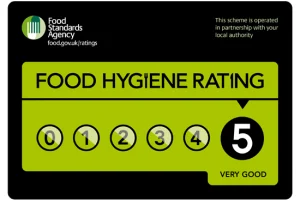A NEATH PORT TALBOT Councillor has spoken out about what he says is a growing number of houses in multiple occupation appearing in his ward along with calls for a stronger decision-making process over their development.
Councillor Saifur Rahaman, who is a Labour representative for the Port Talbot ward, said the number of HMO properties in his area has gradually increased in recent years despite objections raised by members of the public.
Cllr Rahaman, who has represented the ward since 2012, said while he understood the need for HMO properties with a growing demand for affordable accommodation across Wales it was essential the authority engaged with residents in order to gauge local opinion and maintain community balance.
The councillor’s comments came after what he said were difficulties in bringing the applications for planning committee decisions in recent months with a number of “call-ins” having been turned down and made by delegated decisions.
Cllr Rahaman said: “I understand the growing demand for affordable housing, particularly among younger people and single people, and with the waiting lists for housing continuing to rise HMOs play a vital role.
“However my argument is that simply approving HMOs at an increasing rate is not the answer to the problem and as a whole we need to look at a different approach to ensure they don’t negatively impact communities.
“I’m disappointed that requests for recent HMO applications for the Port Talbot ward to be determined at a planning committee have been refused despite potentially receiving a high number of objections.”
Cllr Rahaman went on to say that the latest figures given to him showed that there were currently nine HMO properties in the ward on top of several others that had recently been approved.
He added: “We need to address the situation or I think going forward it could be a big issue. When a HMO gets approved there are sometimes concerns over potential parking pressures, housing standards, waste management issues, and overall community balance that need to be discussed.
“At the moment Neath Port Talbot Council doesn’t have a policy over this either as they follow Swansea Council’s policy but to me the two areas are totally different in terms of both demographics and geography so we need to develop a policy of our own in order to have strong local decision-making powers and to ensure that these HMOs are properly assessed.”
A Neath Port Talbot Council spokesman responded by saying while the council’s current Local Development Plan (LDP) did not have a specific HMO policy in it there would be an opportunity for council members to engage with setting the replacement LDP in the coming year where they could put forward views and evidence on the need for “specific policy or local concerns”.
They added that when it came to HMOs there was an absence of any “significant historical issue in the area” and noted there was a requirement for any proposal not to result in “more than 10% of all residential properties within a 50m radius of the proposal being HMOs”.
They said: “In respect of the electoral ward of Port Talbot according to council tax records there are a total of around 2,800 residential properties of which there are currently nine houses in multiple occupation (HMO) that have applied for planning permission since 2016.
“This represents less than 0.5% of the total number of residential properties. It should be noted that any HMO in place prior to 2016 would also be lawful. As such the actual number of HMOs may be slightly higher.”
They went on: “Turning to the decision-making process, the council has a well-established procedure in place and only certain types of applications are required to always be determined by planning committee.

“The delegated process allows local members at any time to ‘call in’ an application to planning committee and there is a process in place for considering these call-in requests – critically, the request must set out the planning justification for doing so. This request is then considered by the chair of planning along with the head of planning or the development manager – planning.
“Members are subsequently made aware of the decision in writing. A number of planning applications for HMOs have been considered by planning committee in the past.”















